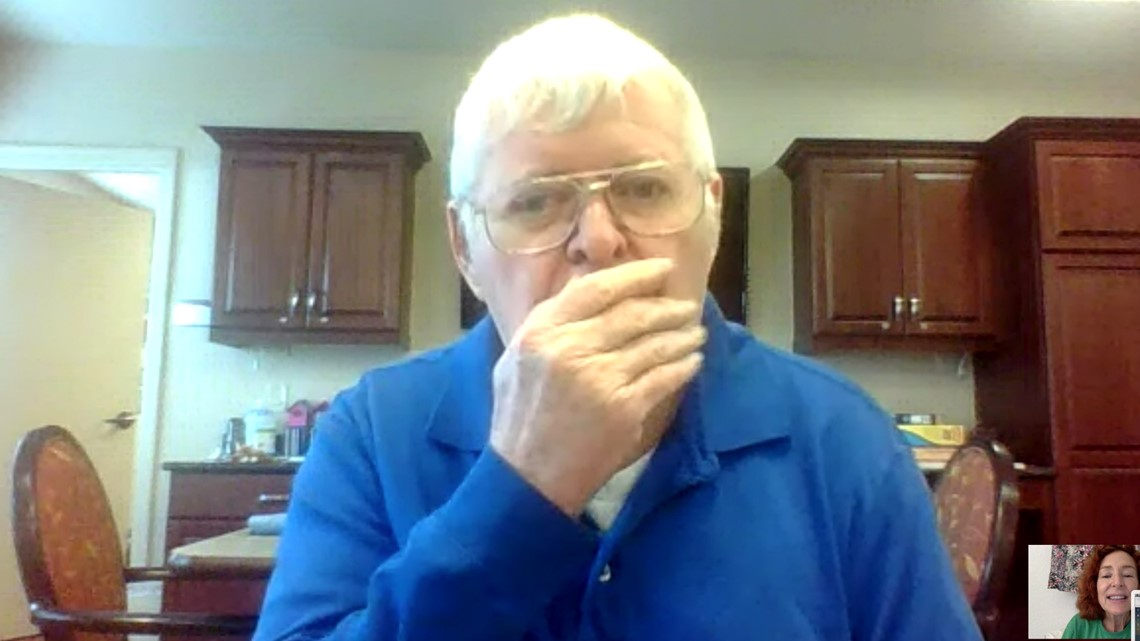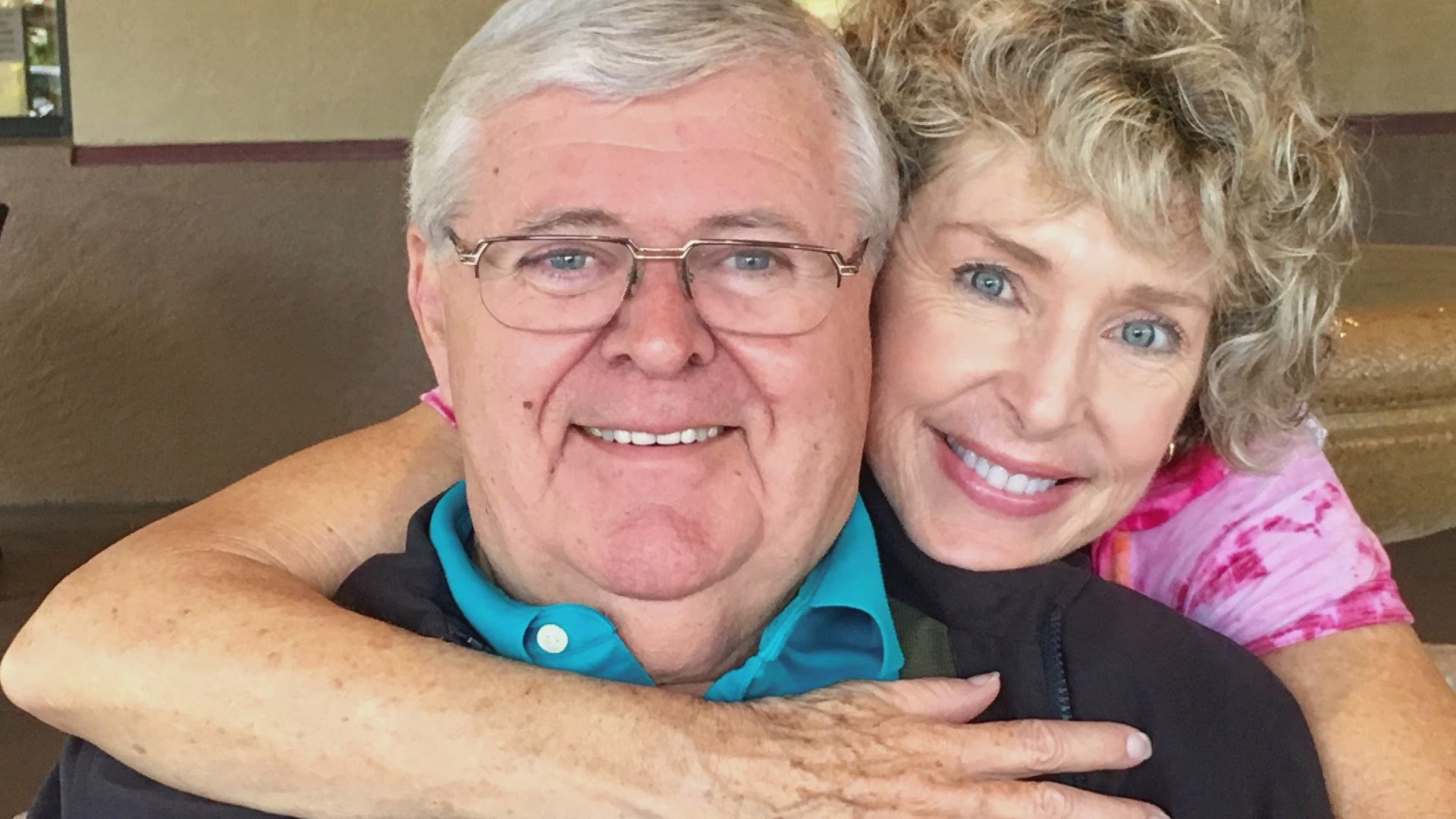NAPLES, Fla. — For the Ryans, everything became clear in September of 2017.
The couple evacuated their Florida home just before Hurricane Irma with intentions of riding out the storm with family in Georgia.
At the time, Jack Ryan was already living with dementia and he and his wife, Sue, had vowed to embrace the new normal and make the best out of their days together.
"I had gotten Jack into such a great routine and when he was out of his routine, we noticed so much of the symptoms of the disease. It became obvious he needed A.) medication and B.) a care facility," Sue told 10 Tampa Bay.
The massive disruption caused by the hurricane caused Sue to find a full-time assisted living center for Jack and accept their new normal, yet again.
Three years later, Sue has never been so grateful for that assisted living facility as Jack continues to thrive in his routine through the global pandemic. Jack and many others who live there have no idea what's going on in the outside world.
"Would I like to be with him? Absolutely. Is the right thing for me to stay safe and healthy and from my perspective, not be selfish? Yes," said Sue.
She said the thought of taking Jack out of his senior facility during quarantine never crossed her mind. Jack doesn't know who she is and their home would be totally foreign to him now.
"He wouldn’t know where he was, what he was to be doing. He would be lost. He would be very confused. He’d be very agitated," she said.
Instead the husband and wife talk often over video chat.


Sue explained that Jack is now in the late stages of Alzheimer's disease and not only doesn't know who she is anymore, Jack thinks his parents are alive and has trouble connecting sentences.
When they meet via video chat, Sue still greets him the same way she has for years, "I say hello love of my life. How’s the man of my dreams?"
Sue's profound acceptance of her husband's disease is inspirational. It's also unique.
Amy Schenk, a dementia specialist and Program Manager with the Alzheimer’s Association says the coronavirus pandemic could be bringing various levels of dementia and Alzheimer's disease to the surface for families.
"This is life-changing change that we’re all living through, and what we find is that kind of situation can cause individuals to have more symptoms of the disease," said Schenk.
Families who relied on adult day programs are left trying to fill that void while others might be noticing signs they never saw before.
"Anytime you see a change in your loved one especially if it’s sudden, contact your healthcare provider," advises Schenk.
When Schenk educates folks about the disease, she offers three tips for caregivers and loved ones that could be especially important now given the current stress caused by COVID-19.
- Practice grace with loved ones, others, and yourself
- Recognize that we’re doing the best we can
- Care for yourself
The Alzheimer's Association has an entire section of their website dedicated to helping families navigate COVID-19.
They offer a 24/7 helpline if you have questions about the disease and it's impact on the people you care about. Call 800-272-3900.
- New coronavirus numbers: Florida adds another 6,093 new cases
- What new Florida laws go into effect on July 1
- Florida woman in viral video charged with battery after reportedly coughing on cancer patient at store
- City of Sarasota passes face mask mandate for indoor and outdoor public spaces
- These Florida beaches are closed July 4th weekend
- Pinellas County beaches will be open for July 4th weekend
- Zip codes with the most coronavirus cases
- Coronavirus in Florida: Hospitalizations, deaths, new cases
►Stay In the Know! Sign up now for the Brightside Blend Newsletter



